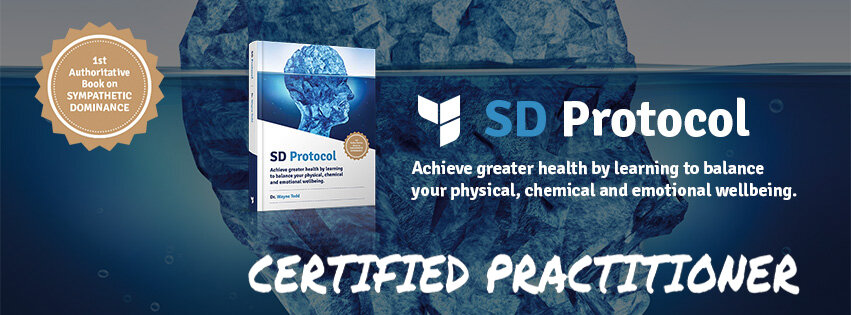Imagine you’re sitting, scrolling through Facebook or your emails and someone lets a tiger into the room. What would you feel and what would you do? Naturally I would expect a few things such as:
- A beating heart
- A rush of adrenalin through your arms and legs (tingling, pulsing, shaking)
- Increased breathing
- Lack of focus
This is your “fight or flight” response. You’re either going to stay and wrestle the tiger to the ground. Or you’re going to run for your life. Either way you need your body to:
- Open your blood vessels to provide more blood flow to your arms and legs so you have the strength to fight or run
- Increase your heart rate so you can pump that blood around
- Increase your blood pressure as the blood pumps around
- Increase your breathing rate so you have enough oxygen for those muscles
- Tighten and tense neck and shoulder muscles
At the same time your body stops or changes the balance of:
- Immune system function – fighting off that virus someone has just coughed into the air is not as much of a threat to you as the tiger
- Hormones – its not important to be making babies when there’s a tiger around
- Digestion – Digesting food is not important when you’re about to be something else’s food
- Sleep – it’s not safe to fall asleep otherwise the tiger will get you or your family
Everything is aimed at survival
This is driven, controlled and stimulated by the sympathetic nervous system.
These changes also happen in our everyday lives. It’s what helps to keep our body in balance. These changes happen when the boss puts pressure on our work output, when the kids test their boundaries, when we argue, whenever we feel pressure in life and believe it or not, the very action of sitting at a desk is actually a stress on our body.
To be fair to our sympathetic nervous system also helps out in positive situations. It helps us to keep our blood sugars in balance, our blood pressure even so we don’t get dizzy when we stand up, it dulls down loud noises and protects our eyes from bright lights. This also helps us to survive as these are vital functions for our body to maintain homeostasis (balance).
Perception of pressure is stress
Stress stimulates the ‘fight or flight’ mechanism in our body.
When these stressors continue our body spends more and more time in “fight or flight” until that is our new normal. We spend our lives on edge. Waiting for something to happen. This is sympathetic dominance and it begins to manifest in other ways:
- Lower immunity – frequent colds and flus
- Digestive system upsets – diarrhoea, constipation, gas, bloating, food intolerances
- Hormone issues – irregular cycles, polycystic ovaries, infertility, heavy and painful periods, long or short cycles
Sympathetic dominance has far reaching effects on the body.
Other stressors grouped into the Triad of Health include:
Physical/Structural
- Over-exercising
- Poor posture
- Sitting a desk all day
- Screen time including ipads, mobile phones, laptop computers
Mental/Emotional
- Unfulfilling relationships
- Turning up to a job each day that we hate
- Self-esteem issues
- Unresolved childhood traumas
Biochemical/nutritional
- Poor diet high in processed sugars and processed foods
- Nutritional deficiencies such as zinc, magnesium and B vitamins
- Toxins such as those in fast food, cosmetics and other personal care products, the environment or medications
- Dehydration
So what can you do about this?
As I have explained in the Health Triad blog post, all health conditions are best approached from all sides of the triangle: physical/structural, mental/emotional and biochemical/nutritional.
Reducing physical and structural stressors using exercises to reverse poor posture, participating in light exercise rather than vigorous exercise everyday, stretches to counteract the negative effects of sitting at a desk all day and of course, chiropractic adjustments will all help to keep the body physically well.
Dealing with unresolved stress with methods such as meditation, NeuroEmotional Technique, taking time out for yourself each day, getting some sunshine, participating in hobbies you enjoy or spending time with friends are all good to reduce our mental/emotional stress.
Reducing the toxic load on our bodies through natural cleaning products, organic personal care products (don’t put anything on your skin you wouldn’t put in your mouth) and eating organic foods where possible will help with biochemical stress. Drinking plenty of water, which means 30mL per kilogram of body weight (1.8L for a 60kg person) each day helps to flush out toxins and keeps us feeling fresh. Plenty of fresh fruit, vegetables, nuts, seeds and well-sourced meats, rather than junky, processed packaged food which is full of chemicals is important to reduce biochemical and nutritional stress on our bodies.
I have just completed my Practitioner Certification in the SD Protocol. Please let me know if you have any more questions about sympathetic dominance.
Below is a video from Dr Wayne Todd, developer of the SD Protocol:

